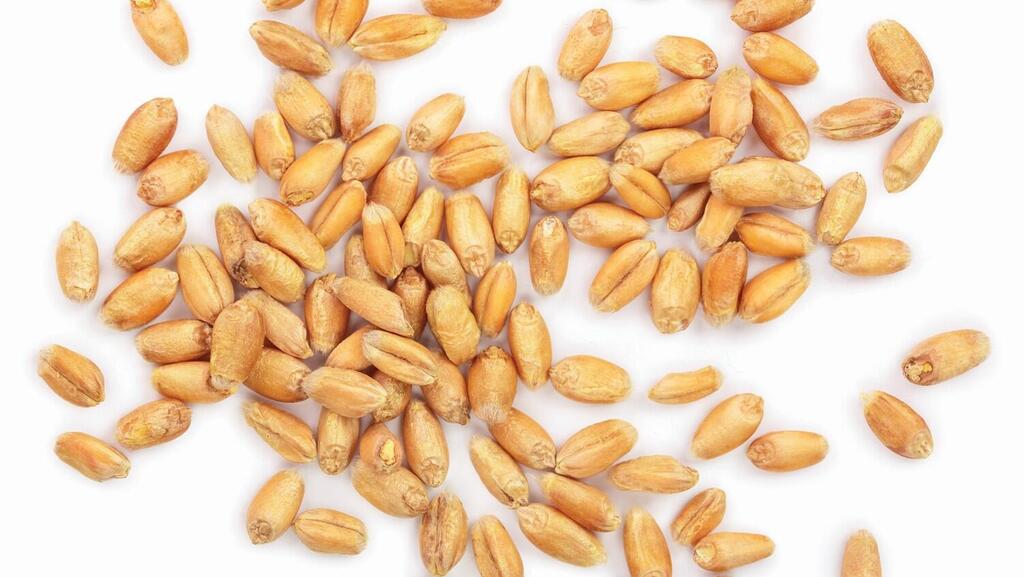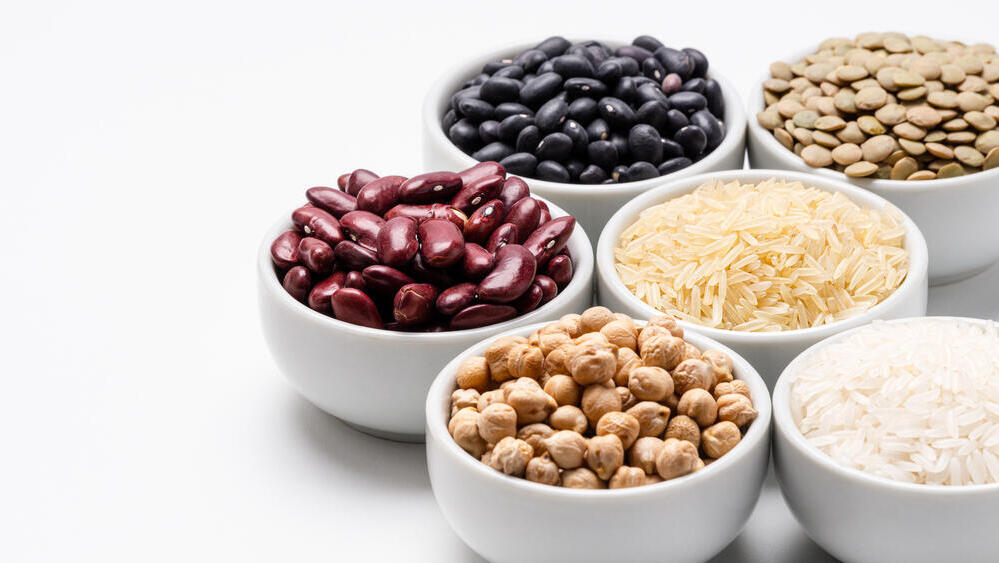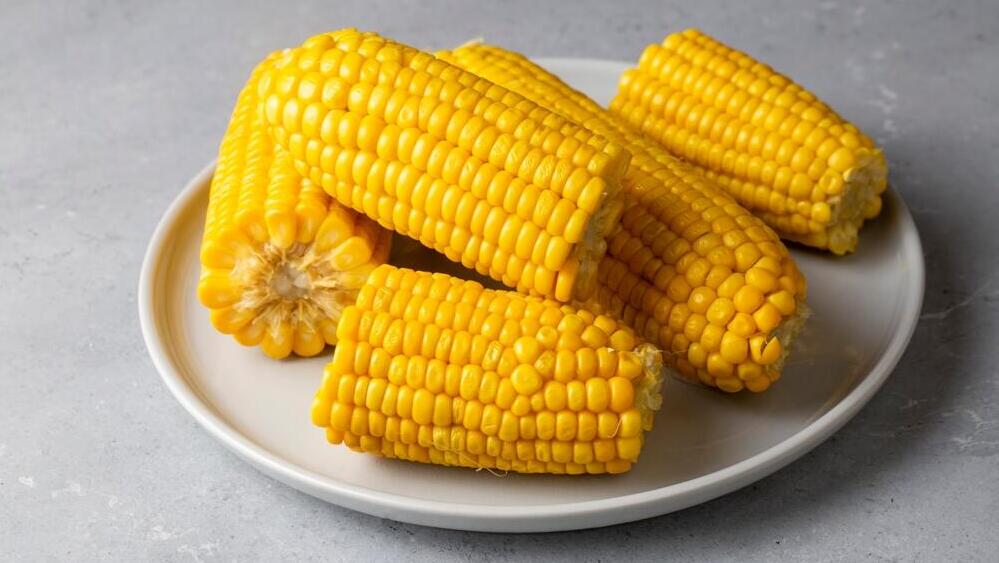Getting your Trinity Audio player ready...
On her 49th birthday, Almog Gold, a naturopath, strategic eating expert and lecturer at Reidman College, traveled to Jerusalem. For three days, she made the final edits to her book, which she had been writing for the past two years, making a guide to personalized eating.
A week later, the events of October 7 broke out and one of her sons, a commander in the IDF’s Kfir Brigade, fought in Kibbutz Mefalsim while another son, a reservist, was sent to guard the northern border.
"Ask me how I was well I was eating," Gold laughs. "I actually discovered that a structured diet was an anchor for me during the most turbulent days – a hot meal in the middle of the day. Everyone has a tendency to eat emotionally, but I learned from previous troubled periods that when we take care of our nutrition, we’re better off mentally during times of uncertainty, and that's partly what my book is about,” she says.
You underwent a transformation 20 years ago.
"Since I turned 18, I weighed 20 kilograms (44 pounds) more than I do today. I had high blood cholesterol levels and suffered from irritable bowel syndrome, fatigue, and stomach aches. That's the genetics I got. I did a lot of diets. At that time, I worked as a strategic consultant for artists and large companies in the economy and understood that nutrition was also a strategy.
“If you don't have an action plan and implement it in a way that suits you, you won't be able to lose weight, calm the aching and bloated stomach, or balance your sugar and cholesterol levels. The mistake that causes 95% of diets to fail is also related to the fact that most of us think we need more knowledge, a special method, or study to succeed in losing weight, and the overwhelming information confuses us. Every woman needs to fine-tune the nutrition that suits her,” she explained.
Gold grew up in a Jewish religious household and studied in a boarding school. At 19, she left the religious life and moved to Tel Aviv. Today, she is remarried and a parent to three children. “I felt less connected to the religious world from a very young age, and I started my new life at 20. I lived on pizzas, diet cola, croissants with margarine and ice cream."
What sparked your transformation?
"While studying for a Ph.D. in political communication and strategy, I experienced weight loss via a tailored strategy and decided I wanted to specialize in the field and change the lives of other women as I did mine. I studied naturopathy and macrobiotic Chinese nutrition for four years with Dr. Mira Niazov."
One of the chapters in her new book is dedicated to carbohydrates. "According to Chinese medicine, every health condition has grains that support it more or less," she explains. "Even in the process of losing weight, and even in order to balance sugar, you need to find the right combinations.
“Whole grains that are personally tailored to a person can induce a feeling of fullness thanks to the fibers they contain, support the nervous system thanks to their high levels of B vitamins, and make you happy because they’re a source of serotonin, the hormone that makes us feel good,” she added.
“There’s no reason to fear grains; you need to learn to combine them alongside protein or fat to balance blood sugar levels. If we match the carbohydrate to the type of person we are, we’ll achieve balance and have results."
The recommendations presented in the article are taken from Gold's book and are not fit to replace personal diagnosis and consultation with a medical professional.
Four types of people
Chinese medicine classifies people into four different types. Each person can find themselves within these categories, and it’s possible to have a combination of traits from two or more types:
1. Someone who’s always cold: If you’re pale, always suffer from cold and anemia, the kind who carries a sweater in their bag even in August, wears many layers in winter yet still has freezing fingers and toes, you can balance yourself with warm food, both in terms of temperature, like porridge or cooked food, but also by incorporating foods considered warming according to Chinese medicine.
Salads, cheeses, or vegetable smoothies may be healthy, but they can weaken you because they’re cold foods that exacerbate the imbalance of cold energy and its effects on the body.
2. Someone who’s always hot: If your face is flushed, are always hot, sometimes have a fiery temper, wear sandals and short sleeves even in winter and tend to suffer from high blood pressure (a sign of excess heat according to Chinese medicine), you can balance yourself by eating cooling foods like dairy and soy products, cold temperature foods, and vegetables and fruits from the fridge.
3. Someone suffering from excess weight: If you suffer from bloating, have a tendency to be overweight, have shiny facial skin, skin-colored moles, sinusitis, and at times a white coating on your tongue, you’re likely suffering from excess moisture in the body.
This means you’re at increased risk for diabetes or high cholesterol, which are considered "dampness diseases," as well as vaginal or nail fungus. You would benefit from a dry diet, such as baked dishes with few sauces, for example.
4. Someone especially thin: If you’re skinny to the point of being gaunt, your skin and lips tend to dry, are prone to wrinkles, hair loss, brittle nails, and at times cracks on your tongue, you’re in a state of dryness according to Chinese medicine and need plenty of fluids and a diet filled with moisture: more porridges and dishes with a lot of liquids and fatty foods.
Less crackers, rice cakes, and popcorn, which are crispy and dry. Women approaching and going through menopause have more dryness due to a decrease in the estrogen hormone, which is a moisturizing hormone.
Carbohydrates and their properties
Here are 11 types of carbohydrates with different properties. The grain that suits you best is the one that balances you. For example, if you tend to be dry, you should eat grains that give moisture, and if you’re hot, a grain with cooling properties would be the right choice for you.
Wheat cools and generates moisture: Most of the Western world’s diet includes wheat: bread, breakfast cereals, cookies and pastries, snacks, pasta, couscous, and others. Reactions that wheat can trigger in the body, often mistakenly seen as integral parts in the race of life, include fatigue, bloating, headaches, low concentration, allergies, joint pain, and thyroid conditions. According to Chinese nutrition, it’s recommended not to consume wheat in cases of colds, fatigue, excess weight, and a tendency to feel cold.
Spelt warms slightly and adds moisture: This is a type of ancient wheat that, although it contains the same amount of gluten, is considered more warming than wheat, undergoes less processing, and is easier to digest.
Rye warms and dries: This grain is rich in iron, has a lower glycemic index than wheat and spelt, meaning it spikes blood sugar levels less and contains less gluten than wheat and spelt.
Buckwheat is the warmest: It’s gluten-free and serves as a good raw material for bread, crepes, and stews. Some people are repelled by this grain, maybe due to the smell of brown buckwheat or because it is less familiar to some. Green buckwheat is much friendlier and has higher nutritional values than the brown variety.
Among other things, it’s rich in folic acid and a substance called rutin, which supports heart and blood vessel health and cholesterol balance. In Chinese medicine, buckwheat supports the kidneys and is suitable for those suffering from cold and weakness, hormonal imbalances and those needing to strengthen their bodies.
Quinoa tends to dry: It’s very rich in protein, iron, calcium, and zinc and comes in white-yellow, black, or reddish colors. The darker the grain or legume, the more iron it contains. Quinoa is recommended for those suffering from cold and anemia due to iron, B12, folic acid, or low ferritin/hemoglobin deficiency, as well as those suffering from fatigue and paleness.
Despite its advantages, about 20% of the population is sensitive to it, so it’s important to try and test its effects. Pay attention to how your body reacts.
Barley dries: Barley has a lower gluten content than wheat. It has a special, somewhat slimy texture that helps with digestive issues such as heartburn, hard stools, and abdominal discomfort. It contains the mineral chromium which helps regulate blood sugar levels, making it the most recommended grain for those with diabetes (under monitoring and supervision).
In Chinese medicine, barley dispels moisture and phlegm from the body and has the ability to move and disperse blockages, making it excellent as a substitute for wheat in cases of congestion.
Rice is suitable for those suffering from allergies: It’s a hypoallergenic and gluten-free grain. In Chinese medicine, it "strengthens Qi," meaning the life force. It’s suitable for a sensitive immune system that reacts with allergies, discomfort, and sensitivity to different types of food.
Since it absorbs fluids, it’s recommended for those suffering from dryness to cook it with plenty of water, like in porridge, and for those suffering from excess moisture, to do the opposite. Basmati white rice is the easiest to digest in cases of diarrhea, bloating, gas, and inflammatory bowel diseases, and it spikes blood sugar levels less than Persian or jasmine rice, for example.
Brown rice sometimes has a less pleasant smell reminiscent of hay but has an advantage: its husk contains fibers, vitamins, and minerals. Therefore, it’s advisable to soak brown rice in lukewarm water for at least half an hour before cooking, which will contribute to a better taste and help with fiber digestion.
Oats generate moisture and warm slightly: The most common form found in stores is whole flattened grain or "instant" (broken grain). It’s suitable for those suffering from dryness and cold. You can cook oats to make porridge, which will be a warm, pleasant, quick, and filling meal due to its richness in fibers — soluble fibers that are generally easier to digest.
This meal is suitable for warming and adding moisture to the body. Oats contain a concentration of B vitamins that support the nervous system's activity, meaning they promote calm, concentration and focus, making porridge recommended as an evening meal for better sleep. Oats can also alleviate heartburn or dry coughing.
Corn cools: This grain has a very cooling quality to its energy, suitable mainly for eating in summer and for those who are always hot. Corn quickly breaks down into sugar in the blood, so if you want to enjoy sugar, it's better to choose your favorite sweet treat rather than incorporate corn into meals.
But if you choose corn, it’s best to consume it as close to its natural form as possible, such as directly from the cob, to enjoy its fibers.
Potatoes add moisture and cool: This is a starchy vegetable and therefore filled with carbohydrates. Its energy is more moisture-adding and cooling. Potatoes are rich in starch and break down into sugar in the blood relatively quickly.
Sweet potatoes warm: They benefit the digestive system due to their orange color (beta-carotene), which according to Chinese medicine is related to the earth element and the digestive system.








